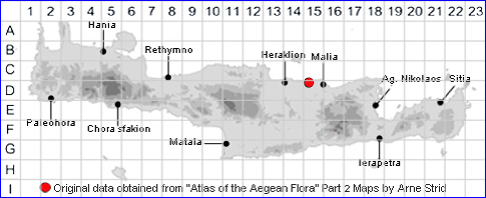
SPECIES DESCRIPTION
VIBURNUM TINUS
Family and Genus:- See- CAPRIFOLIACEAE
Common Names:- Lauristinus
Homotypic Synonyms:- Viburnum hyemale.
Meaning:- Viburnum (L) Latin name for the wayfaring tree.
Tinus (L) Old Latin name for Lauristinus (=viburnum)
General description:- Evergreen shrub.
Stems:-
1) 2-4 m, twigs subglabrous or sparsely pubescent, weakly angled, purplish.
Leaves:-
1) 3-7 x 1·5-7 cm, opposite, ovate-orbicular to ovate-lanceolate, entire, obtuse or
acute, coriaceous, glabrous, shining, dark green above, sparsely pubescent or
glabrescent beneath.
a) petioles, 0·5-1·5(-2) cm, with c. 4 pairs of lateral veins beneath.
Flower:-
1) Inflorescence, 4-9 cm diam.
a) flowers, 5-9 mm diam, uniform, fertile, pinkish outside, white inside.
b) peduncle, 0·5-2·5 cm.
Fruit:-
1) Drupe, subglobose, c. 8 mm. dark blue, with a single, globose pyrene.
key features:-
1) Leaves, coriaceous, evergreen, entire.
2) Twigs, glabrous or sparsely pubescent.
Habitat:- Scrubland vegetation, orchards, roadside thickets, ruderal habitats by
villages. 0-400 m.
Distribution:- Aegean records almost certainly refer to subspontaneous material.
Native in Kerkira and maybe in coastal areas of the W mainland. - W & C
Mediterranean region (1) Rare on Crete currently known from only one location near
Malia.
1) Atlas of the Aegean Flora (part 2 maps) Arne Strid 2016.
Flowering time:- In Apr.
Photos by:- Courtesy of Wiki-Commons.
